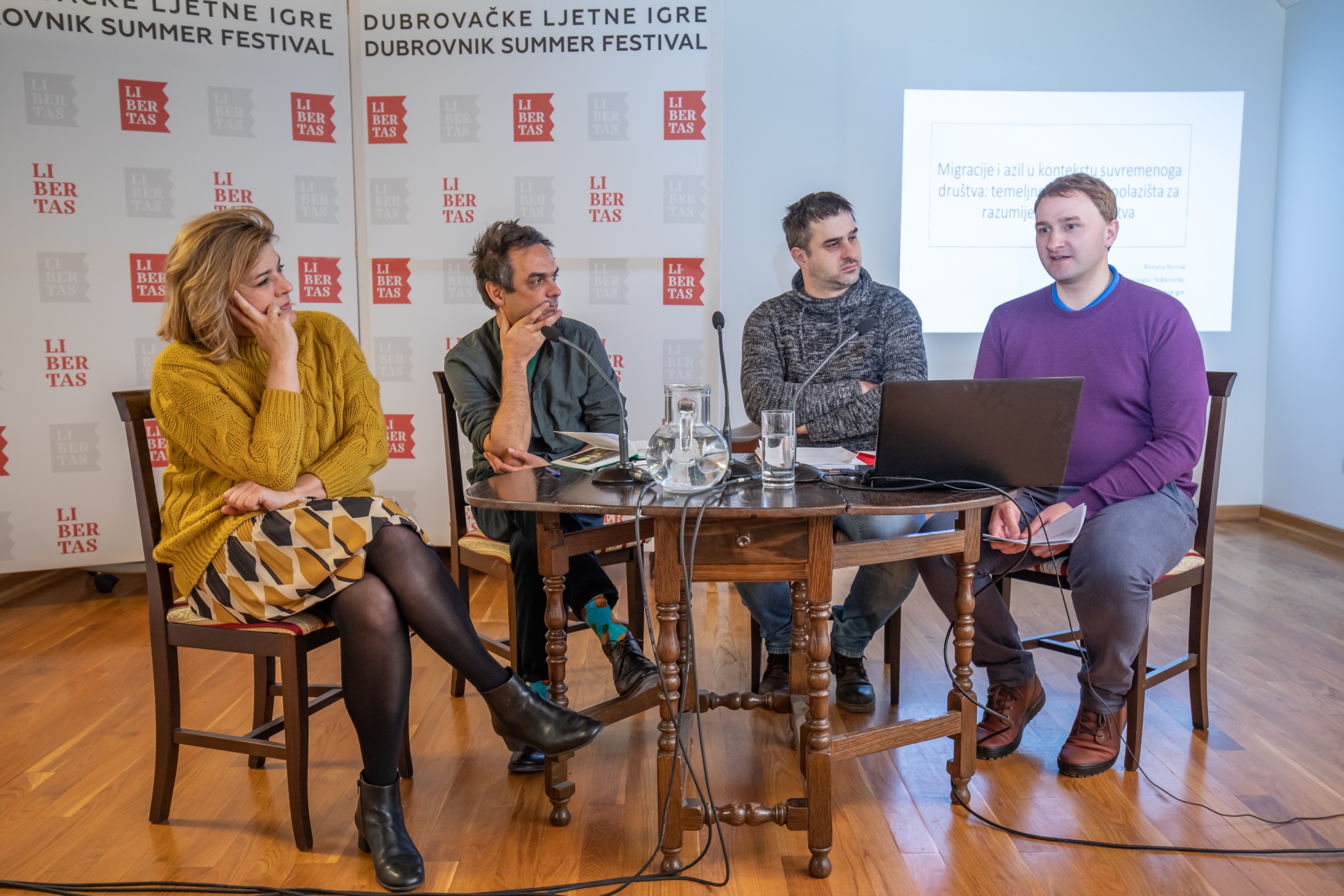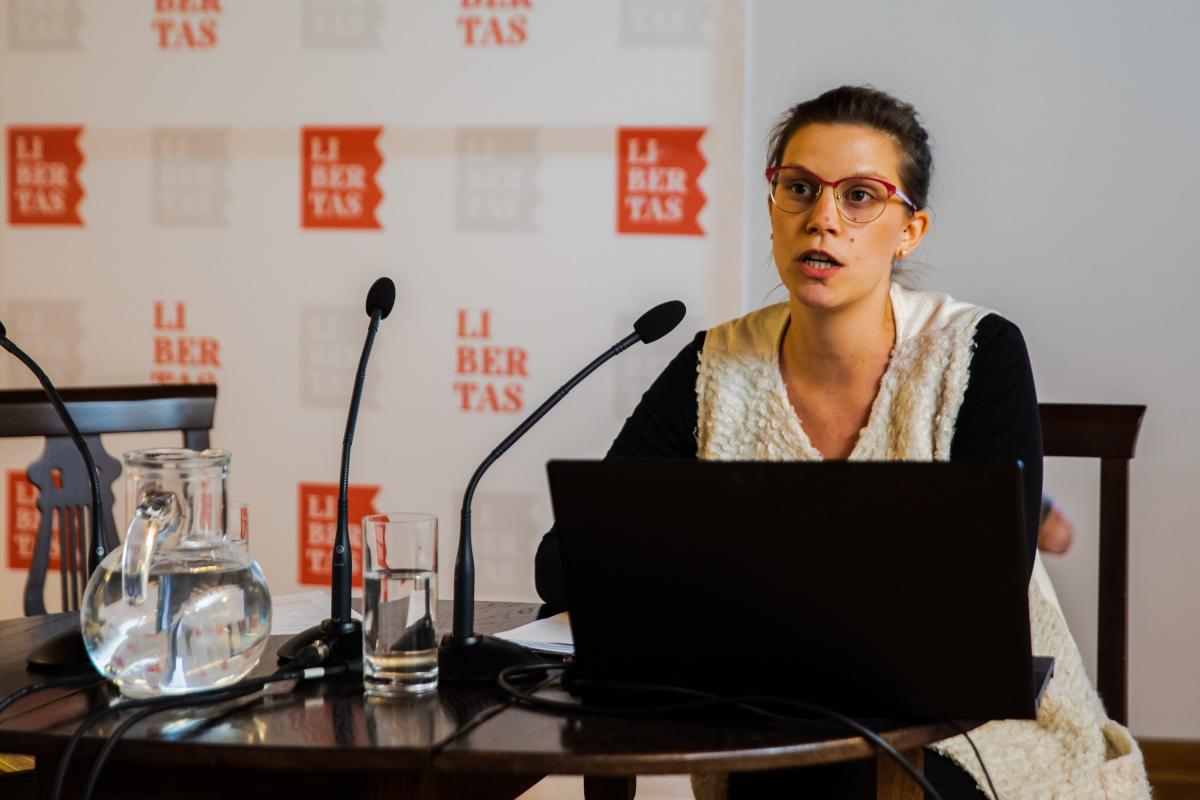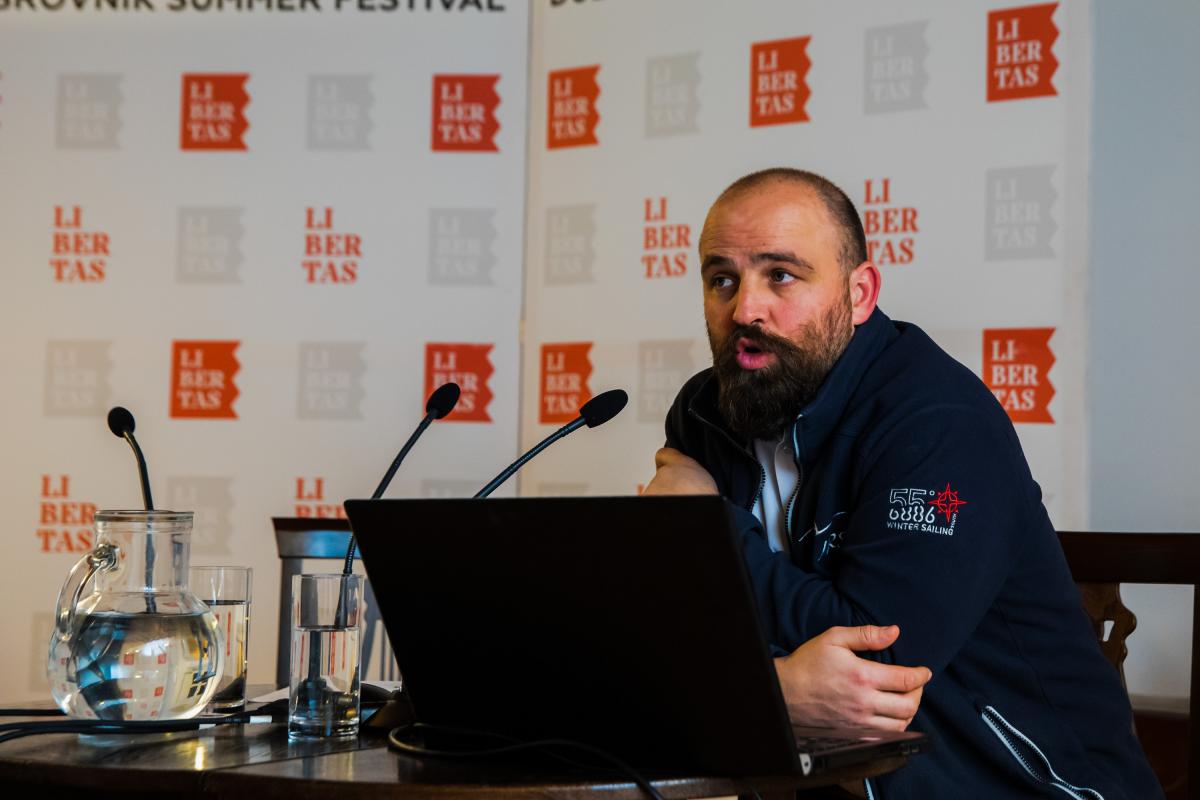
Cultural and artistic project Port of Dreamers was presented by the Festival Artistic Director Dora Ruždjak Podolski, Assistant Artistic Director Saša Božić and project partners Milan Vračar from the Kulturanova civil society organisation from Novi Sad and Benjamin Virc from the Slovene National Theatre of Maribor on 16 December at the Festival Palace. The presentation was followed by Romana Pozniak’s lecture on migrations and asylum in the context of contemporary society and the lecture of Tvrtko Barun, the head of the Jesuit Refugee Service South-East Europe.
Port of Dreamers is a two-year project co-funded by the European Union through the programme Creative Europe – Culture Sub-programme, and it deals with the history of migrations on the European continent, which will serve as an inspiration for artists. The project will examine the experience of being a migrant, the positive impact of migrations on development of certain cultural, social and economic environments and the relationship between the terms (and concepts) ‘citizen of Europe’ and ‘migrant’. Art workshops with migrants, workshops for artists, an exhibition and two theatre productions will be take place along with the development of an interactive web-based platform. The total value of the project is around 316,000 EUR, and the European Commission participates with 60% of the funds. The Ministry of Culture of the Republic of Croatia also co-funded the project.
In her lecture entitled Migrations and asylum in the context of contemporary society: basic principles and starting points for understanding refugeedom, Romana Pozniak from the Institute of Ethnology and Folklore Research explained the basic terminology in the field of forced migrations in contemporary context, with the focus on conceptualisation of refugeedom with regard to social, cultural, political and legal determinants of the phenomenon. She also reviewed general mechanisms of asylum systems and irregular migrations which regulate treatment of international protection seekers. She analysed the practices of bureaucratisation, criminalisation and humanitarianisation from the perspective of cultural anthropology and their influence on everyday life, as well as categorisation of people into refugees, asylum seekers, asylees, economic migrants, illegal migrants and others. By reconsidering the functioning of international humanitarian and security policies, humanitarian organisations and government and non-governmental sector, she offered theoretical starting points for understanding the complexity of modern migrations and refugeedom by using examples from the research carried out with international protection seekers, occurrences during recent ‘refugee crisis’ and from her experience of working in humanitarian sector. In conclusion, key points for critical consideration and demystification of common public and media view of migrants and refugees as a threat were pointed out. Aside from her scientific analysis, Romana Pozniak shared her personal experience of working at the Winter Reception and Transit Centre in Slavonski Brod and at the International Organisation for Migration (IOM) on projects of child protection and integration of young migrants.

Romana Pozniak
As the head of the Jesuit Refugee Service South-Eastern Europe, Tvrtko Barun spent last four and a half years ‘in the field’ in Croatia, Serbia, Bosnia and Herzegovina and Kosovo, and in his lecture entitled Migrants - people torn between somebody else’s politics and their own desire for a better tomorrow, he shared his insights into situations encountered by migrants and his view on political and worldview challenges we all face together - our societies and migrants. The audience learned that, although the public does not perceive it, the number of migrants has drastically declined since 2015 and 2016, and that today we cannot talk about migrant crisis at all. He pointed out, like the speaker before him, that politics significantly affect the climate and atmosphere in EU societies and that many manipulations and political interests are involved. Barun also said that the matter of identity is important when we talk about migrants and refugees. There is a fear of islamisation, fear that those who are coming will change our identity, thus reducing the situation to the matter of Christian Europe, while in fact the number of Muslims in Europe has grown by only 1% since 2015 and 2016 and those who worry about Christian Europe or Catholic Croatia should be reminded of these facts. Such arguments in fact manipulate Christianity, manipulate religious feelings, and wire and fence have nothing to do with Christianity, Barun pointed out. ‘In this matter, matter of others, of those who are different, as people of good will we do not have many alternatives, either we will treat the other as a man, benevolently, or as a wolf, as a threat, expecting a conflict to arise. Each of us as an individual and as a society must decide what we want to be like,’ Barun concluded.

Tvrtko Barun
Full audio recording of the project presentation and the two lectures is available on Soundcloud.

